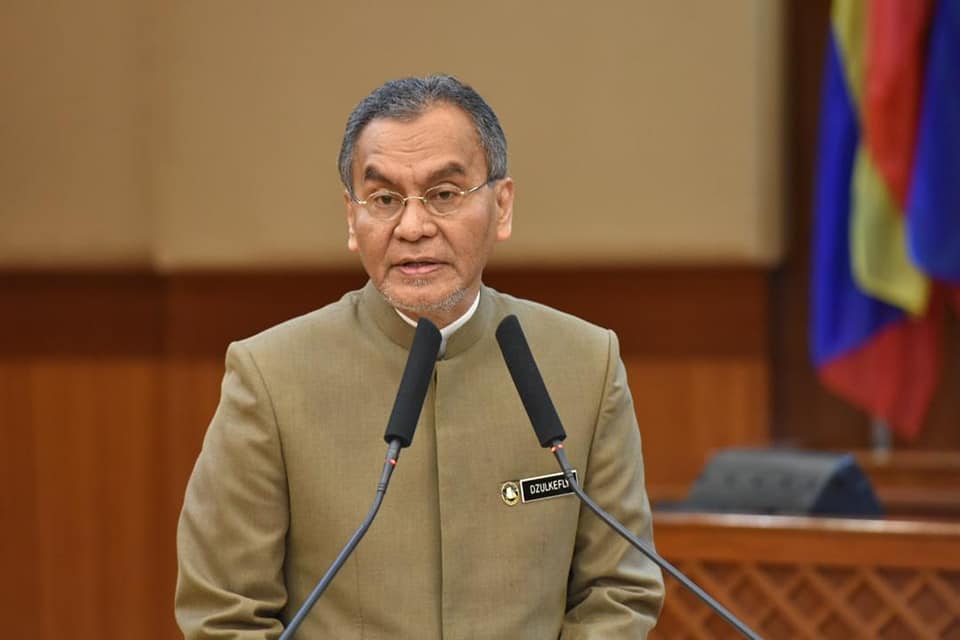KUALA LUMPUR, Feb 2 — Pakatan Harapan (PH) today urged the government to explain how the European Union’s (EU) decision to restrict Covid-19 vaccine exports will affect Malaysia’s vaccine rollout.
The PH Immunisation Task Force noted that Malaysia has not been exempted from the EU’s export control regime that is in effect until March 31, even as Malaysia is expected to receive the first shipment of 144,000 Pfizer-BioNTech doses by this month. The Pfizer-BioNTech vaccines Malaysia ordered are manufactured in Belgium.
Malaysia is also scheduled to receive 6.4 million AstraZeneca-Oxford University doses, with shipments expected as early as April.
“The EU decision will inevitably affect Malaysia’s national Covid-19 vaccination programme. The Pakatan Harapan Vaccination Task Force urges the Malaysian government to clarify the status and impact on the national Covid-19 vaccination programme,” said the PH Immunisation Task Force, chaired by former Health Minister Dzulkefly Ahmad, in a statement.
“Pakatan Harapan urges the European Union to respect developing countries’ rights of access to Covid-19 vaccines. We stand united with all developing countries, to urge vaccine-producing countries to respect the sanctity of agreements signed between countries and vaccine companies and not to impose any restrictions on exports.”
CodeBlue reported yesterday that the EU’s vaccine export controls on doses produced in the bloc — including Pfizer and AstraZeneca vaccines — apply to upper middle and high income Southeast Asian countries like Malaysia and Singapore, though the EU is exempting low income ASEAN economies like Cambodia, Indonesia, Myanmar, the Philippines, and Vietnam, among other poorer countries.
Under the EU’s new export mechanism, pharmaceutical companies must seek approval before shipping vaccines out of the bloc.
“While the government also has other portfolios of vaccines, including China’s Sinovac vaccines have been scheduled for delivery by the first quarter, but yet it has not been approved by the National Pharmaceutical Regulatory Agency (NPRA), which will normally take about 60 to 90 days for an approval,” said the PH Immunisation Task Force.
Opposition lawmakers also highlighted mixed efficacy results of Sinovac’s vaccine across different clinical trials, with the Brazil study showing only 50.4 per cent effectiveness.
“All these factors will likely cause further delay in the overall timeline for the vaccination programme. With the ever-increasing numbers of Covid-19 cases in our country, the government must now come out to clarify its plans and intention to address this change and lay out its alternative plans to manage the spread of Covid-19 while waiting for the arrival of the vaccines,” said the PH Immunisation Task Force.
“How will this delay affect our financial commitments to these pharmaceutical companies? What is the government’s new expected timeline in view of such developments?
“Pakatan Harapan believes that the government is duty-bound to be transparent and to explain to the people the effects of this possible delay. They must also be proactive in drawing up plans to mitigate the effects of such a delay and come up with a comprehensive plan to better curb the spread of the virus in our country.”
Health director-general Dr Noor Hisham Abdullah reportedly said yesterday that the first batch of Pfizer vaccines is expected to arrive in Malaysia on February 26, but it is unknown if this is the original schedule before EU’s export controls kicked in on January 30.
CBC reported Canada International Trade Minister Mary Ng as saying that she had received verbal assurances from EU officials that the vaccine export controls would not affect Canada’s coronavirus vaccine orders. Canada, the United States, and Australia were not included in the EU’s exemption list.
Ng reportedly said Belgium Deputy Prime Minister Sophie Wilmès had similarly reassured her that Canada’s advanced purchase agreements would be honoured.








